Search Results
Showing results 1 to 20 of 51
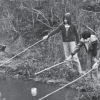
Attract a Fish
Source Institutions
This outdoor activity/field trip requires a place where minnows swim, such as a local pond or brook.

Rusty Penny
Source Institutions
In this easy chemistry activity, learners submerge pennies in different liquids (water, lemon juice, vinegar, liquid hand soap, salt water, and baking soda mixed with water) to observe which best clea

Hold a Hill
Source Institutions
In this outdoor activity, learners investigate the relationship between the slope of a trail and soil erosion.

Lichen Looking
Source Institutions
In this outdoor activity, learners search for lichen, a combination of a fungus and an alga living together. Lichen grow where most other plants cannot, on rocks, the trunks of trees, logs and sand.
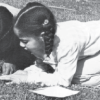
Bean Bugs
Source Institutions
In this outdoor biology and math activity, learners estimate the size of a population of organisms too numerous to count.
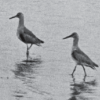
Flocking for Food
Source Institutions
In this outdoor beach activity, learners use a variety of "beaks" (such as trowels, spoons or sticks) to hunt for organisms that shore birds might eat.
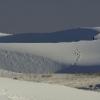
Sandy Samples
Source Institutions
In this collecting/comparing activity, learners work with samples of sand from different places like a lakefront, river, or ocean beach.
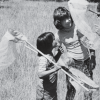
Animal Diversity
Source Institutions
In this outdoor activity, learners find, count and compare as many different kinds of animals as they can find in two different areas: a managed lawn and a weedy area.
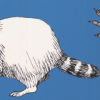
Who Goes There?
Source Institutions
In this outdoor, night activity, learners track nocturnal animals' footprints, droppings and other signs of their presence.

Terrestrial Hi-Lo Hunt
Source Institutions
In this outdoor activity, learners search for the warmest and coolest, windiest and calmest, wettest and driest, and brightest and darkest spots in an area.

Sensory Hi-Lo Hunt
Source Institutions
In this outdoor activity, learners use only their senses to to find the extremes of several environmental variables or physical factors: wind, temperature, light, slope and moisture.
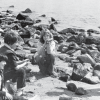
Beachcombing
Source Institutions
In this outdoor activity, learners become beachcombers as they walk on a sandy beach in search of evidence of life.

Moisture Makers
Source Institutions
In this outdoor activity, learners compare the moisture released from different kinds of leaves and from different parts of the same leaf, by observing the color change of cobalt chloride paper.

Hopper Herding
Source Institutions
In this outdoor activity and game, learners roundup a "herd" of hopping insects and find out how many different kinds or species are in their herd.
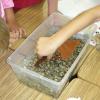
Crayfish Investigations
Source Institutions
This activity has learners interacting with live crayfish, but could be adapted for a variety of similar hardy and interesting organisms.
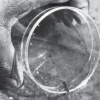
Water Striders
Source Institutions
In this outdoor activity/field trip, learners catch and observe water striders to explore their movement and feeding behaviors.
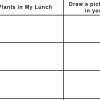
Take a Plant to Lunch
Source Institutions
Learners make a "menu" of any plants in their lunch for Monday through Friday and draw the plants from their lunch.

OBIS Oil Spill
Source Institutions
In this outdoor activity, learners simulate an oil spill using popcorn (both oil and popcorn float on water), and estimate the spill's impact on the environment.
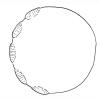
Elephant Foot
Source Institutions
Using a real-size sketch of a baby elephant's footprint, learners estimate, measure and record the width (diameter) and outside edge length (perimeter or circumference) of the footprint.
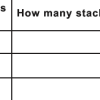
Piles of Pennies
Source Institutions
In this coin math activity, learners sort and stack 100 (one hundred) pennies into piles of 5 pennies each, 10 pennies each, and 20 pennies each.
